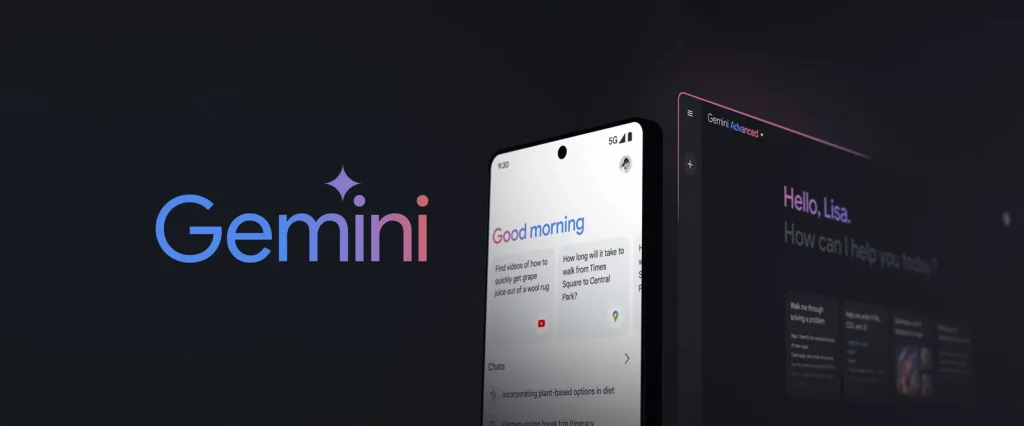Google has taken the next big step in revamping its AI strategy by officially introducing Gemini, a unified AI platform that consolidates its previous efforts like the Bard chatbot and Duet AI. By rebranding and enhancing these services under the Gemini name, Google is making its intent clear – they are throwing it down in the AI sector, directly challenging the popularity of OpenAI‘s ChatGPT.
The Gemini AI has a whole new set of advanced features for users
The transformation into Gemini brings with it a suite of advanced features, extending Google’s AI capabilities to text, voice, and image interactions. With a dedicated app for Android users and integration into the Google app for Apple users, Gemini is set to become more accessible and user-friendly.

At the heart of Gemini’s new offerings is Gemini Ultra, available through Google One‘s AI Premium tier. For a monthly fee of $20, users gain access to advanced AI features, alongside the usual perks of Google One like additional cloud storage. This positions Gemini as a strong competitor to ChatGPT Plus, offering a richer package for the same price.
Google aims to make Gemini stand out by infusing it with a distinct personality. The goal is to move beyond the neutral tone typical of AI interactions, offering users a more engaging and dynamic experience. By understanding user intent and reacting with personality, Gemini hopes to carve out a unique space in the AI chatbot landscape.
Despite the upgrades, there’s a level of skepticism around the ability to distinguish large language models like Gemini from others, such as ChatGPT. The real challenge for Google lies in demonstrating clear advancements and convincing users of Gemini’s unique value proposition.
As Google rolls out Gemini, starting in the US and later expanding to the Asia Pacific region, the AI community and users worldwide are keen to see how this new contender fares against established players like ChatGPT. Google’s commitment to innovation in AI through Gemini marks an exciting chapter in the evolving story of artificial intelligence.
RELATED:
- Apple Vision Pro gets OpenAI’s ChatGPT app
- Here’s how to run ChatGPT voice assistant on your Nothing Phone
- Get Redmi K70 Pro for discounted price of $499
- Best Robot Vacuums of 2023 – Gizmochina
(Via)







